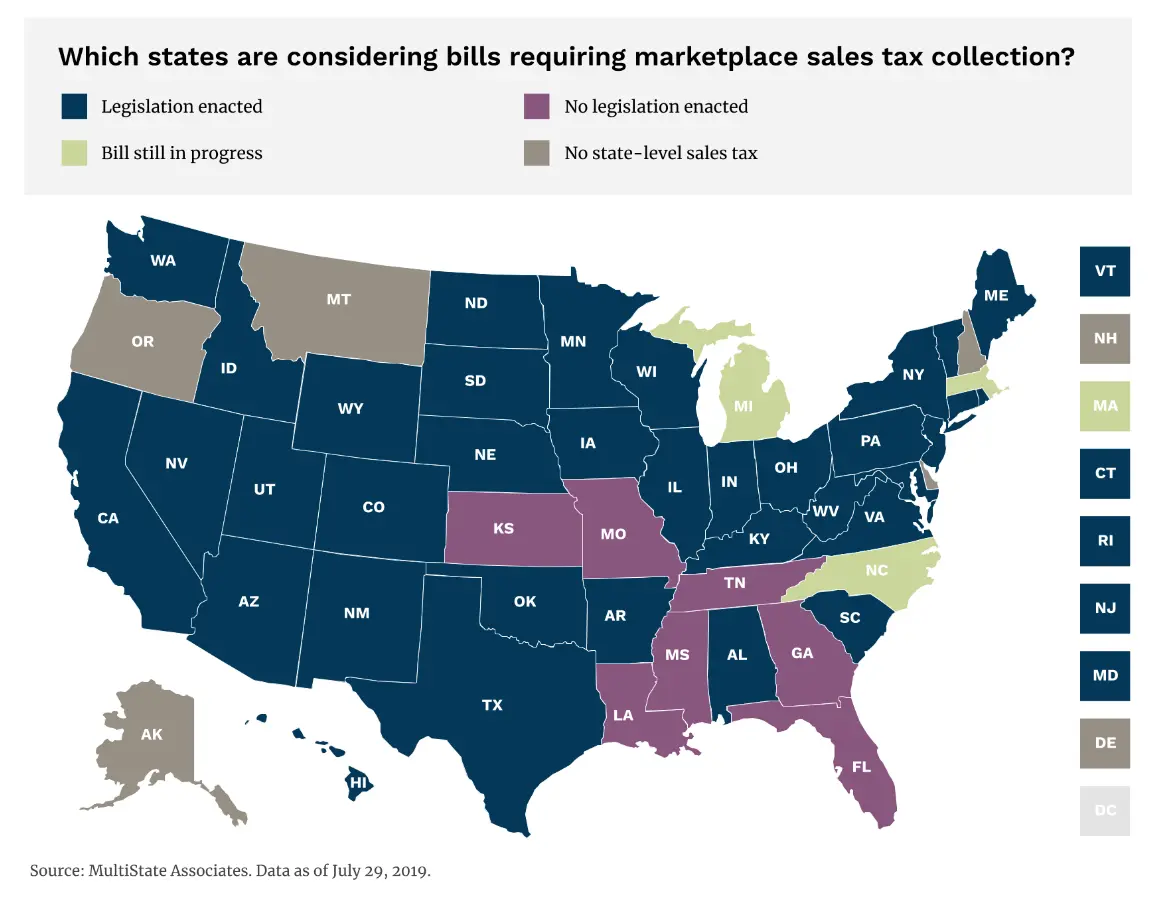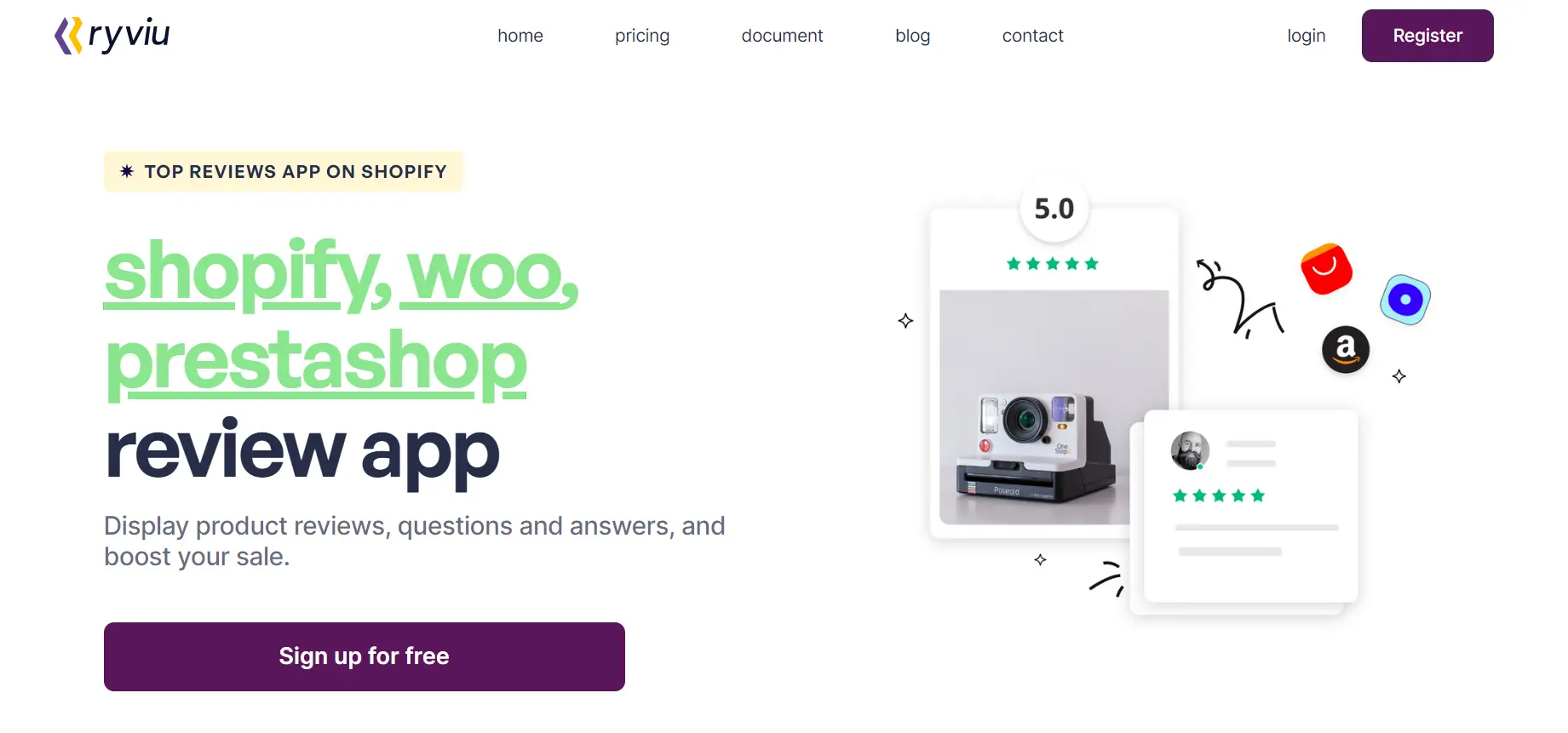Is Shopify A Marketplace Facilitator: A Detailed Explanation

As the eCommerce industry continues to thrive, platforms like Shopify have become go-to solutions for businesses aiming to establish their online presence. However, there remains a common question: Is Shopify a marketplace facilitator?
In this article, we will examine the characteristics and functionalities of Shopify, compare them to traditional marketplace facilitators, and explore whether Shopify fits the definition of a marketplace facilitator in the ever-evolving world of eCommerce.
Marketplace Facilitator: An Overview
What is A Marketplace Facilitator?
A marketplace facilitator is an online platform or service that enables third-party sellers to sell products or services to consumers. They provide a digital marketplace, handle payment processing, facilitate secure transactions, and often offer additional services like order fulfillment and customer support.

Marketplace facilitators also have the responsibility of collecting and remitting sales tax or VAT on behalf of the sellers. Their role is to connect buyers and sellers, streamline the selling process, and provide a seamless experience within the online marketplace.
Benefits of Marketplace Facilitator
Marketplace facilitators offer a range of benefits to sellers. These advantages can significantly contribute to the success and growth of sellers within the online marketplace.
- Simplified selling process: Marketplace facilitators provide a streamlined platform that simplifies the selling process for third-party sellers. They handle aspects such as payment processing, order management, and customer support, allowing sellers to focus on their core business without worrying about technicalities.
- Increased visibility and reach: Joining a marketplace facilitated by a well-established platform can significantly enhance a seller's visibility and reach. These platforms often have a large customer base and marketing resources, exposing sellers to a broader audience and increasing their chances of making sales.
- Trust and credibility: Marketplace facilitators often have established brands and reputations, which can instill trust and credibility in buyers. Sellers benefit from being associated with a trusted platform, as it can help attract more customers and build a positive reputation for their products or services.
- Payment security: Marketplace facilitators handle payment processing, providing a secure environment for both buyers and sellers. This eliminates concerns about fraud or payment disputes and offers a reliable and secure payment infrastructure.
- Customer support and dispute resolution: Marketplace facilitators typically offer customer support services, assisting buyers and sellers in resolving any issues or concerns. This helps maintain a positive buying experience and can alleviate the burden of customer support for individual sellers.
- Tax compliance: One of the significant advantages for sellers on a marketplace facilitated by a marketplace facilitator is the handling of tax collection and remittance. The facilitator takes care of collecting and remitting sales tax or VAT on behalf of the sellers, ensuring compliance with tax regulations and reducing administrative burdens.
- Operational efficiency: By leveraging the infrastructure and services provided by marketplace facilitators, sellers can improve operational efficiency. They can focus on product development, inventory management, and other core business activities while relying on the facilitator for transaction management and logistics support.
- International reach: Some marketplace facilitators operate globally, allowing sellers to expand their reach to international markets without significant investment or logistical challenges. This opens up new opportunities for sellers to access a global customer base and increase sales potential.
- Data and analytics: Marketplace facilitators often provide sellers with access to data and analytics, offering insights into customer behavior, sales trends, and performance metrics. This data can be valuable for sellers to optimize their strategies, improve product offerings, and make informed business decisions.
- Lower marketing costs: Joining a marketplace facilitated by a well-known platform can reduce marketing expenses for sellers. The facilitator's brand and existing customer base help generate traffic and potential sales, minimizing the need for individual sellers to invest heavily in marketing and advertising efforts.
Is Shopify a Marketplace Facilitator?

No, Shopify is not considered a traditional marketplace facilitator. While Shopify is a popular eCommerce platform that enables businesses to create their online stores, it operates differently from a typical marketplace facilitator.
Unlike marketplace facilitators such as Amazon or eBay, Shopify does not operate a centralized marketplace where multiple sellers list their products for sale. Instead, Shopify provides individual businesses with the tools and infrastructure to create their independent online stores.
Shopify allows you to set up your storefronts, manage inventory, process payments, and handle order fulfillment. While it offers various features and integrations to support eCommerce operations, it does not function as a centralized marketplace where buyers can browse and purchase products from different sellers.
However, it's worth mentioning that Shopify does have a platform called "Shopify Plus" that caters to larger enterprises and brands. While it provides additional features and scalability options, it still operates based on individual online stores rather than a multi-seller marketplace.
Therefore, while Shopify is an eCommerce platform that facilitates online selling, it is not typically classified as a marketplace facilitator in the same sense as platforms like Amazon or eBay.
Shopify vs. Marketplace Facilitators: Key Differences
Here are the key differences between Shopify and traditional marketplace facilitators in terms of independence and customization, transaction and fulfillment management, sales tax collection, visibility, and competition:
Independence and Customization
- Shopify: Businesses using Shopify have the independence to create and customize their online stores according to their branding and preferences. They have more control over the design, layout, and functionality of their storefronts.
- Marketplace facilitators: In contrast, sellers on marketplace facilitators like Amazon or eBay have less control over the overall design and branding of their listings. They typically operate within a standardized framework provided by the marketplace, limiting customization options.
Transaction and fulfillment management:
- Shopify: Businesses on Shopify are responsible for managing their transactions, including payment processing, order management, and fulfillment. They have control over choosing their preferred payment gateways and shipping providers.
- Marketplace facilitators: Marketplace facilitators handle transaction processing and often provide integrated payment solutions. They may also offer fulfillment services or have partnerships with logistics providers to assist sellers with order fulfillment.
Sales tax collection
- Shopify: Businesses on Shopify are generally responsible for collecting and remitting sales tax themselves. Shopify provides tools and integrations to assist with tax calculation and management, but the responsibility falls on individual sellers.
- Marketplace facilitators: Marketplace facilitators often have the obligation to collect and remit sales tax or VAT on behalf of the sellers using their platform. They take on the responsibility of ensuring compliance with tax regulations, relieving sellers of the burden of tax collection.
Visibility and Competition
- Shopify: Sellers on Shopify have their independent online stores and rely on their marketing efforts to drive traffic and generate sales. They have more control over their visibility and face competition primarily from other businesses outside the Shopify platform.
- Marketplace Facilitators: Sellers on marketplace facilitators benefit from the visibility and customer base of the platform. However, they also face increased competition as they share the marketplace with numerous other sellers offering similar products or services.
It's important to note that the specific features and functionalities may vary between different marketplace facilitators and eCommerce platforms like Shopify. The distinctions outlined above are general differences that highlight key aspects of each model.
Finally, if you want independence, control over branding, and flexible customization options for your store, just choose Shopify.
If you prioritize accessing a large customer base and leveraging the platform's visibility, and prefer a streamlined selling process with integrated transaction management and fulfillment services, go for a marketplace facilitator like Amazon, or AliExpress.
Whatever you choose, you need to build trust for your store. One of the best solutions to increase credibility for online store is using Ryviu app which helps you easily add, import, display and import customer reviews on your store.

Or you can consider Sellthetrend. This powerful tool not only helps you effortlessly imports products to your shopify store but also offers advanced product research and trend analysis features. With Sell The Trend, you can stay ahead of market trends, enhancing your store's selection of products and driving sales. Trust in the power of data-driven insights to elevate your online business.
Is Shopify a Marketplace Facilitator: FAQs
Why isn't Shopify a marketplace facilitator?
Shopify is not considered a traditional marketplace facilitator because it operates as an eCommerce platform that empowers businesses to create their own independent online stores.
Unlike marketplace facilitators, Shopify does not provide a centralized marketplace where multiple sellers list their products for sale. Instead, it offers businesses the tools and infrastructure to set up and customize their own storefronts, manage inventory, process payments, and handle order fulfillment.
Is Shopify a marketplace platform?
No, Shopify is not a marketplace platform in the traditional sense. While it enables businesses to sell products online, it does not function as a centralized marketplace where buyers can browse and purchase products from various sellers.
Instead, Shopify provides businesses with the means to create their own branded online stores, giving them more independence and control over their selling process.
What is an example of a marketplace facilitator?
Examples of marketplace facilitators include well-known platforms like Amazon, eBay, Alibaba, Etsy, and Walmart Marketplace. These platforms bring together multiple sellers, offer a centralized marketplace where buyers can explore and purchase products from various sellers, handle transaction processing, and often provide additional services such as order fulfillment and customer support.
What is Shopify considered?
Shopify is considered an eCommerce platform. It provides businesses with the necessary tools and infrastructure to create and manage their own online stores. Shopify offers features for website customization, product management, payment processing, order fulfillment, and marketing.
It caters to businesses of all sizes, from small independent sellers to large enterprises, and supports their eCommerce operations by offering a range of services and integrations.
Conclusion
Now you can find the answer to the question “is Shopify considered a marketplace facilitator”. While Shopify shares some similarities with marketplace facilitators, it operates primarily as an eCommerce platform rather than a centralized marketplace. Its focus on empowering businesses to create independent online stores sets it apart. Hopefully, with the information Updimes provided in this article, you understand these distinctions between Shopify and marketplace facilitator to seek the right eCommerce solution for your needs.


